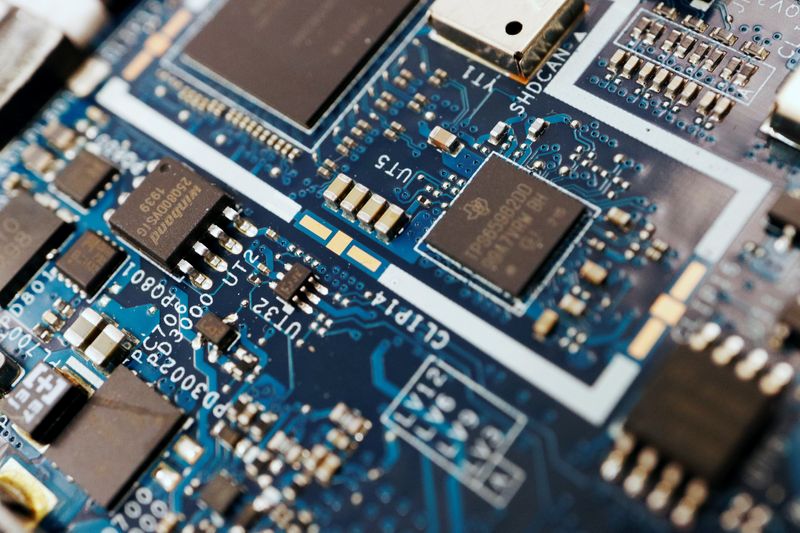Months later, U.S. Senate tries again for computer chip bill to compete with China
2022.07.19 13:42
2/2

FILE PHOTO: Semiconductor chips are seen on a circuit board of a computer in this illustration picture taken February 25, 2022. REUTERS/Florence Lo/Illustration
2/2
By Patricia Zengerle
WASHINGTON (Reuters) – Over a year after passing its first version of a bill boosting semiconductor competition with China, the U.S. Senate was due to begin voting on Tuesday on a slimmed-down version of legislation to provide more than $50 billion in subsidies for the computer chip industry.
The Senate’s Democratic majority leader, Chuck Schumer, announced that the first procedural vote would take place on Tuesday, calling U.S. semiconductor manufacturing a matter of national security as well as a source of jobs.
Senate aides said the goal is to pass the bill early next week. The would send the bill to the House of Representatives, whose approval would then send it to the White House for President Joe Biden to sign into law.
Senate aides said the bill would include $52 billion to rebuild the U.S. semiconductor industry as well as tax incentives for companies to build plants in the United States.
“The message is not subtle: If companies do not think it is profitable to make chips here in America, they are going to go somewhere else,” Schumer said as he opened the Senate on Monday.
Administration officials held briefings for lawmakers last week to urge passage.
The Senate approved a bipartisan $250 billion bill boosting spending on technology research and development in June 2021, one of the first major pieces of legislation passed after Democrats gained their slim control of the chamber.
However, the legislation was never taken up in the Democratic-controlled House, which earlier this year passed its own bill, with almost no Republican support. That measure included provisions to boost chipmakers, but also billions of dollars for other supply chains and the Global Climate Change Initiative, which Republicans oppose.
Urged by the administration to do something, lawmakers recently began working more urgently on the slimmed-down legislation focused on semiconductors.








